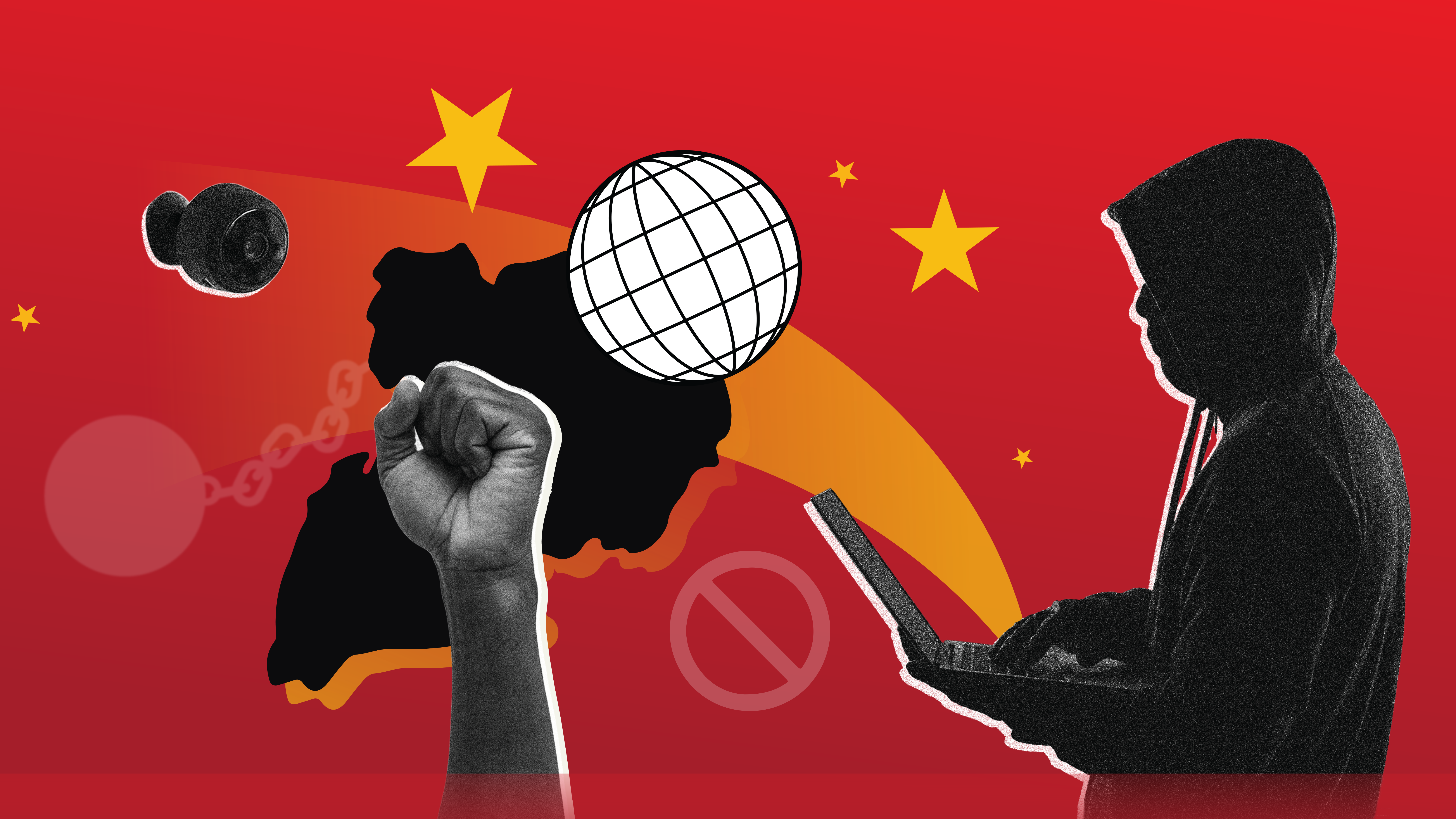By CIPESA Writer |
A new policy brief by the Collaboration on International ICT Policy for East and Southern Africa (CIPESA) on the deteriorating state of digital rights in Uganda examines whether the east African country is drawing inspiration from China for its brand of digital authoritarianism.
Uganda is ranked as “Partly Free” by Freedom House’s annual Freedom on the Net report, with the biggest contributing factor being the repressive laws governing the digital civic space and surveillance, particularly those that enable internet censorship, network disruptions, and deployment of surveillance technologies such as spyware and video surveillance.
China has been a notable source of support in developing Uganda’s digital communication and other infrastructure. For example, Chinese telecom firm Huawei helped set up a video surveillance system for the Uganda Police, and reportedly aided security agencies to spy on political opponents in the country. China has also organised numerous study tours for Ugandan officials and journalists that are centred on popularising its economic and governance systems.
The brief illuminates how China and its model of governance and state surveillance may be influencing or inspiring retrogressive laws and undermining digital rights in Uganda. It explores the legal reforms necessary to advance digital rights in Uganda and the role that legislators, civil society organisations, human rights defenders (HRDs), and journalists should play.
Uganda has mirrored some practices from China, a country which various global indices consider a leading player in digital authoritarianism. While it is not patently clear whether China has directly influenced legislation in Uganda, the brief notes that “it has arguably inspired some of the legal frameworks and practices that fuel digital authoritarianism in the east African country.”
There is ample evidence indicating that African autocracies are exploiting the adoption of Chinese technology and model of internet controls to roll back democratic gains through surveillance and censorship.
China invested more than USD 110 million in Uganda’s National Backbone Data Transmission Project and also supported the National Fibre-Optic Project. There are suggestions that the national backbone and fibre-optic projects are part of a digital infrastructure that has enhanced the Uganda government’s surveillance capabilities that violate the right to privacy and freedom of expression.
China has continually buttressed its influence over Uganda’s social-economic development through the seemingly no-strings-attached loan schemes that have often been acknowledged and praised by President Museveni. This non-interference policy in the internal affairs of other countries allows their governments greater leeway to suppress dissent and democratic processes without facing criticism or repercussions from China.
By contrast, the Uganda government or senior public officials have during 2023 and 2024 attracted sanctions by the United States of America, the United Kingdom, and the World Bank over governance and human rights concerns. As such, the Chinese no-governance-strings-attached model is criticised for emboldening authoritarian tendencies in the countries it partners with.
However, the brief states that claims of China actively seeking to export its governance model and influencing local laws and practices in Africa are often anecdotal and inconclusive. Moreover, such claims and, often, the evidence they advance, assume that African governments are incapable of developing home-grown systems of governance and thoughtlessly rely on models from other continents.
Recommendations
Uganda should resist all foreign influence and models that promote digital authoritarianism and undermine democracy. The country’s laws must respect internationally recognised human rights standards and promote the use of a free, open, and safe internet.
The brief makes several recommendations, such as:
- Parliament should strengthen legal and regulatory frameworks by amending or repealing regressive and oppressive frameworks to ensure responsible and ethical use of surveillance technology.
- Parliament should enact laws that specifically protect journalists, whistle-blowers, human rights defenders, and activists from wanton threats, arrests, and prosecutions over legitimate online communications and activism that advances social accountability, respect for human rights, and good governance.
- Civil society should conduct evidence-based research into the actions of foreign actors and how they adversely impact local laws, policies, and democratic governance.
- Various stakeholders, including academia, the media, and lawyers, should engage in public interest litigation to challenge provisions in legislation that limit the exercise of digital rights.
See the full policy brief here.

